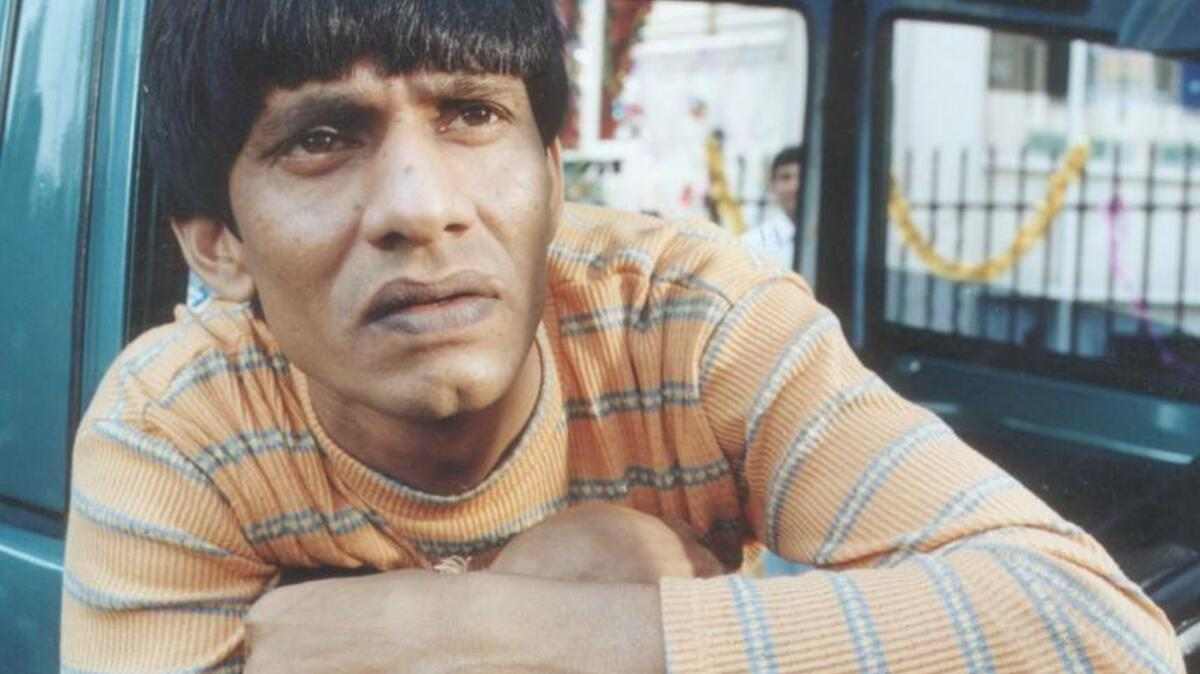Two decades since its release, “Raghu Romeo” continues to reverberate across the cinematic landscape as a benchmark of innovation and storytelling finesse. Its enduring impact on the realm of dark comedy and its resonance with diverse audiences attest to its stature as a cinematic marvel that transcends temporal boundaries. The film’s lasting influence and its ability to mirror the human experience have propelled it beyond the confines of mere entertainment, establishing it as an enduring work of art.
In an era inundated with formulaic narratives and conventional plot arcs, “Raghu Romeo” emerges as a beacon of audacity. Kapoor’s audacious foray into the dark comedic realm represents a departure from the cinematic norm, challenging both creators and spectators to engage with narratives that mirror the intricacies of life. The film’s portrayal of human emotions, desires, and vulnerabilities, wrapped in a cloak of satire, transforms it into a mirror that reflects the multifaceted essence of humanity itself.
Perpetuating A Cinematic Legacy for Posterity
Artistic creations often fade into the background as the wheels of time roll forward. However, “Raghu Romeo” defies this inevitable process, standing as a guardian of its own legacy and a guiding light for future generations of filmmakers and cinephiles. Its perpetual resonance is a testament to the film’s profound impact, one that shapes the present and molds the future.
As cinema evolves and new generations emerge, the allure of “Raghu Romeo” remains unwavering. Its magnetic quality, drawing contemporary viewers into its intricate narrative dance, is equally potent in capturing the imagination of the youth of today. In an era marked by fleeting trends and digital distractions, the film’s ability to arrest attention and stimulate introspection underscores its timeless relevance.
The universality of “Raghu Romeo” is evident in its capacity to traverse generational boundaries. Viewers who witnessed its debut continue to find solace and significance in its themes, while the youth of today, raised in an entirely different sociocultural landscape, discover a mirror that reflects their own aspirations and anxieties. This intergenerational dialogue is the hallmark of an enduring work of art, one that transcends its era to spark conversations and contemplations that span decades.
In a world marked by rapid change, “Raghu Romeo” stands firm as a bridge between past, present, and future. Its power to evoke laughter, incite introspection, and awaken empathy defies the temporal constraints of celluloid, reminding us that human emotions, aspirations, and vulnerabilities remain timeless. In this way, the film not only perpetuates its own cinematic legacy but also enriches the broader tapestry of artistic expression.
As filmmakers and storytellers continue to craft narratives, “Raghu Romeo” remains a lodestar of artistic excellence. Its audacity to explore the complexities of existence, the interplay of light and dark, and the nuances of human desires serves as an inspiration for those who seek to push the boundaries of their craft. The film’s legacy encourages creators to embrace ambiguity, shatter conventions, and infuse their works with the authenticity that resonates across generations.
In conclusion, “Raghu Romeo” is not merely a film frozen in the past; it is a living testament to the power of storytelling and its ability to traverse time’s labyrinthine corridors. Its universal appeal, its capacity to engage with audiences of all ages, and its profound exploration of the human experience cement its status as a work of art that stands as a beacon, guiding future generations toward the enduring magic of cinema. The film’s legacy, like an eternal flame, illuminates the path for storytellers and viewers alike, reminding us that the pursuit of art is a dialogue that transcends the constraints of time and space.
Challenging Conventions, Redefining Norms
“Raghu Romeo” undeniably challenges the conventions of Bollywood, carving a niche for itself within the expansive canvas of Indian cinema. The film’s thematic courage, eschewing easy resolutions in favor of an authentic portrayal of human frailty, signifies a departure from the formulaic happy endings of mainstream cinema. This audacity inspires filmmakers to embrace ambiguity and challenge conventional narratives, injecting freshness into the cinematic landscape.
Art that endures engages in a timeless dialogue with audiences across generations. “Raghu Romeo” exudes a magnetic quality that draws in not only contemporary viewers but also the youth of today who explore its realms anew. Its ability to evoke laughter, introspection, and empathy across generations stands as a testament to its universal appeal.
“Raghu Romeo” perpetuates a cinematic legacy by influencing subsequent creators to explore the darker, more nuanced dimensions of storytelling. Its success emboldens filmmakers to craft narratives that defy categorization, to embrace the contradictions inherent in human existence, and to wield humor as a tool for introspection and revelation.
The Inextinguishable Spark Of ‘Raghu Romeo’
As cinematic landscapes evolve, certain works remain unscathed by the passage of time. “Raghu Romeo” occupies an indelible space in this rarefied stratum. Its audacious storytelling, impeccable performances, and thematic depth render it a timeless emblem of artistic prowess. In its exploration of the fragility of human aspirations and the complexities of existence, the film becomes an eternal flame, illuminating the corridors of cinema’s potential to mirror, challenge, and elevate the human experience.
“Raghu Romeo,” with its rich narrative tapestry, unflinching exploration of human desires, and audacious marriage of comedy and melancholy, stands as an unrivaled testament to the art of storytelling. The film’s ability to resonate with audiences across temporal and cultural divides is a testament to its universality. As time advances and cinematic trends evolve, “Raghu Romeo” endures as a touchstone of artistic innovation, inviting viewers to traverse its corridors of irony, introspection, and inspiration. Truly, it is a masterpiece that defies time and genre, etching its brilliance into the fabric of cinematic history.












